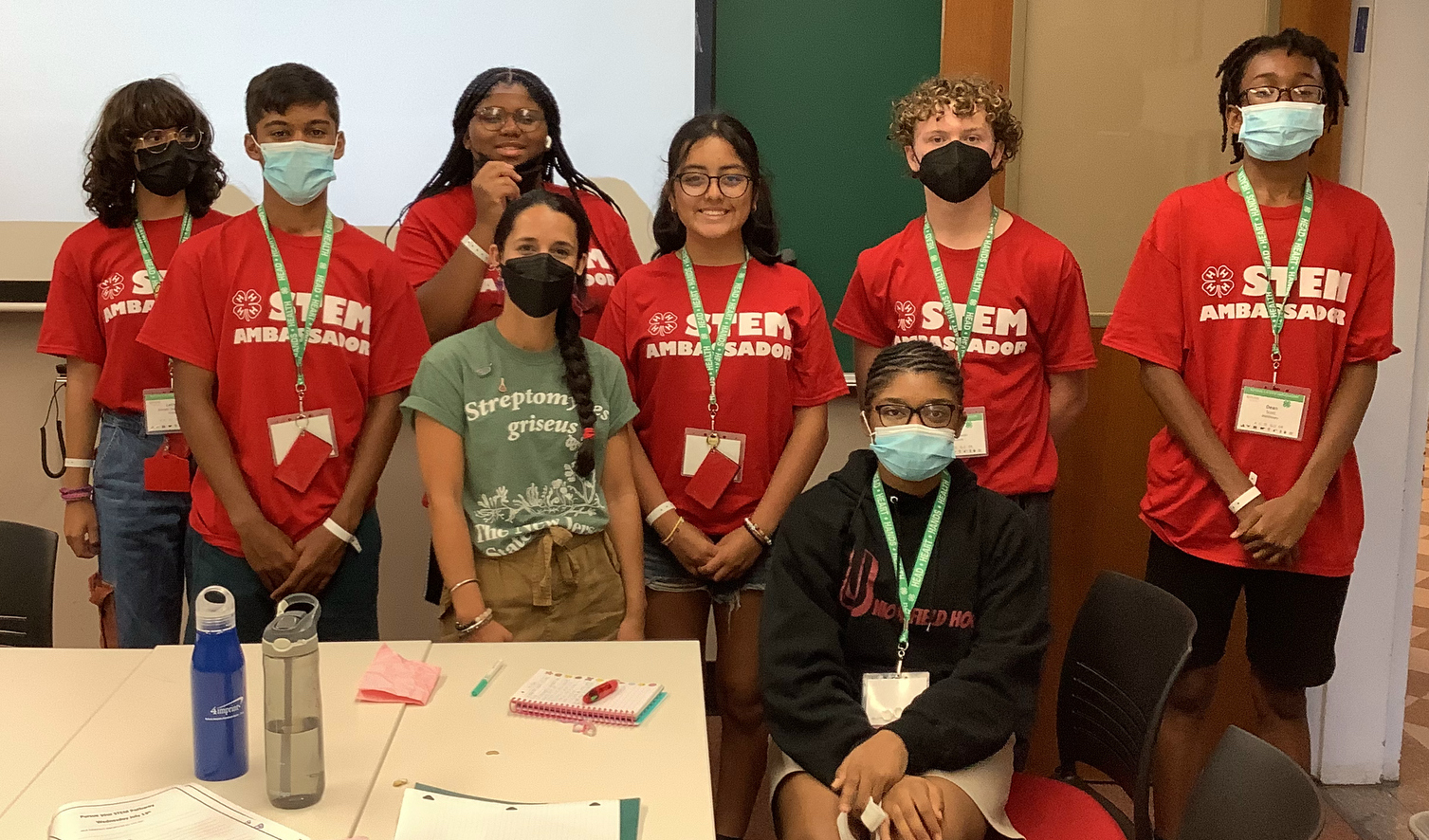News Archive
In Memory of Theodorus van Es
October 8, 2022

Theodorus van Es died on October 8 at the age of 92. Dr. van Es was born shortly before World War II in Rotterdam. Food was very scarce, and he told stories of himself and his mother riding on their bicycles into the countryside to buy eggs from a farmer they knew. It was dangerous, and they feared being shot at by fighter planes or being stopped at checkpoints. In the city they faced air raids from both the allies and the Germans. There was a famine in much of Western Europe after the war, so when he was fourteen the family migrated to South Africa. He completed his formal education at the University of Witwatersrand, earning a B.Sc. in Chemistry and Physics with honors in 1954, and his doctorate in Organic Chemistry in 1961. Along the way he worked in the gold mines collecting samples for analysis from deep underground and performing the analyses. He rapidly decided against further work in the mines! Dr. van Es taught and did research at Witwatersrand from 1957 through 1968 and returned there as Visiting Professor of Chemistry while on sabbatical in 1990-91. In 1968 he joined the faculty of what was then Rutgers College. Between 1979 and 1989 he served as Chair of Biochemistry and Director of the Graduate Program in Biochemistry on the Busch Campus. He moved to the Department of Biochemistry and Microbiology in 1992, in what was then Cook College, now the School of Environmental and Biological Sciences, where he remained until his retirement. Dr. van Es’s research focused on the biochemistry and chemistry of carbohydrates, the development and properties of non-immunogenic enzymes with emphasis on their use as therapeutic agents, and in enzymatic reactions in organic solvents. The work led to a patent, shared with two colleagues, on non-immunogenic polypeptides (pegolated enzymes). As of the end of 1992, when he ceased to keep records, the patent had earned the university approximately $3 million. A Fulbright Award in 1986-87 enabled him to spend a year’s sabbatical at the University of Botswana. While there he collaborated on the analysis of chlorinated pesticides from animal tissues from northern Botswana. The work was presented at a symposium in Gaborone in 1988. Professor van Es was a dedicated teacher throughout his career. Over the years he taught many graduate and undergraduate lecture and laboratory courses. Since joining the Department of Biochemistry & Microbiology, his classroom teaching focused on large courses: Introductory Biochemistry, a one-semester course and our two-semester General Biochemistry course. In spite of the severe demands on his time of administrative positions, he always made time for individual students who came to him for help with material or for counseling. He would spend as much time in one-on-one conversation as needed and gained a reputation as one of the kindest of men. Typical of him was taking the time to help a stranded student change a flat tire on her car. She must have reported that to the dean, who sent him a wonderful letter of appreciation. In addition to classroom and laboratory course teaching, Professor van Es, served on several M.S. or Ph.D. thesis committees each year. Five students earned their doctorates in his lab, in addition a very large number of undergraduates who did research with him. Colleagues like him are rare. We will miss him.
Max Häggblom was the Co-Director and lead instructor/mentor of the 2022 FEMS Summer School for Postdocs: Microbiology for a Sustainable Future
September 3, 2022 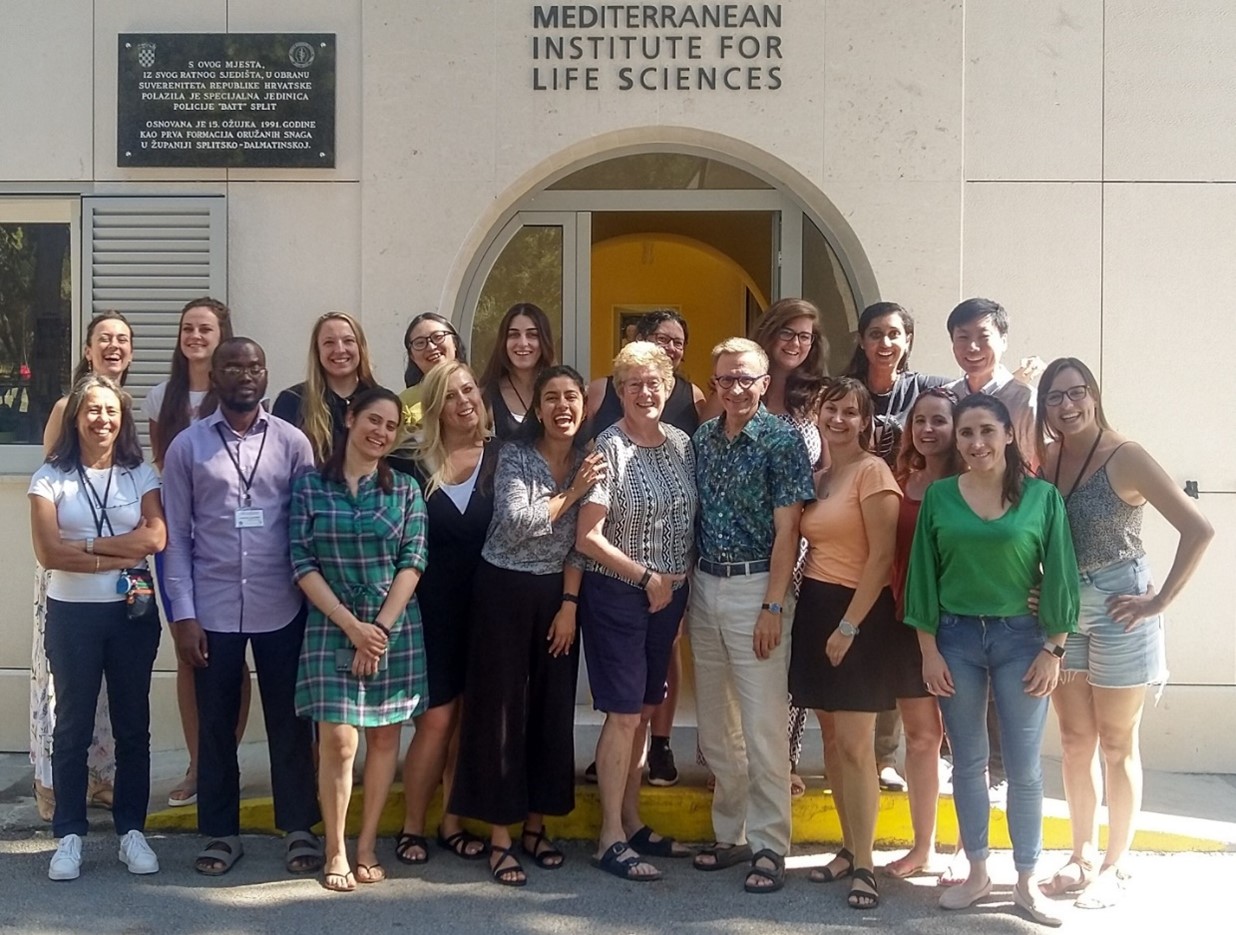
Max Häggblom was the Co-Director and lead instructor/mentor with Hilary Lappin-Scott (Cardiff University) of the 2022 FEMS Summer School for Postdocs: Microbiology for a Sustainable Future held September 3-13, 2022 at the Mediterranean Institute for Life Sciences in Split, Croatia. FEMS, the Federation of European Microbiological Societies, set up in 1974, is a growing coalition of 56 Member Societies from 40 countries. FEMS comprises an active and diverse network of around 30,000 professionals who are committed to advancing microbiology for the benefit of society in the areas of health, energy, food, materials, and the environment. As a not-for-profit organization, the income from our journals is used to fund charitable activities and support the community, in particular Early Career Scientists. The FEMS Summer School for Postdocs presented a unique opportunity for early career scientists to receive instruction and supervision from prominent academics, collaborate and network with fellow researchers from an international range of countries, and to discuss their own work as well as wider aspects of being a scientist. The FEMS Summer Schools are designed to support personal and professional development through 10 days of close work with top scientists, and to enable and encourage research collaboration across all fields of microbiology. The 2022 Summer School on Microbiology for a Sustainable Future covered an exciting range of topics including - water quality/developments in wastewater treatment technologies, biodegradation of toxic chemicals, biogeochemical cycles, climate change, bioenergy, urbanization – microbes in the build environment, microbes in agriculture, Onehealth, and bioinformatics and health. The speakers and mentors examined microbiology in the changing word of the Anthropocene, exploring the metabolic adaptations of microbial communities and their impacts on biogeochemical cycles, their symbioses, and the interactions of complex microbial assemblages from pristine tundra to polluted industrial sites, and to the human host.
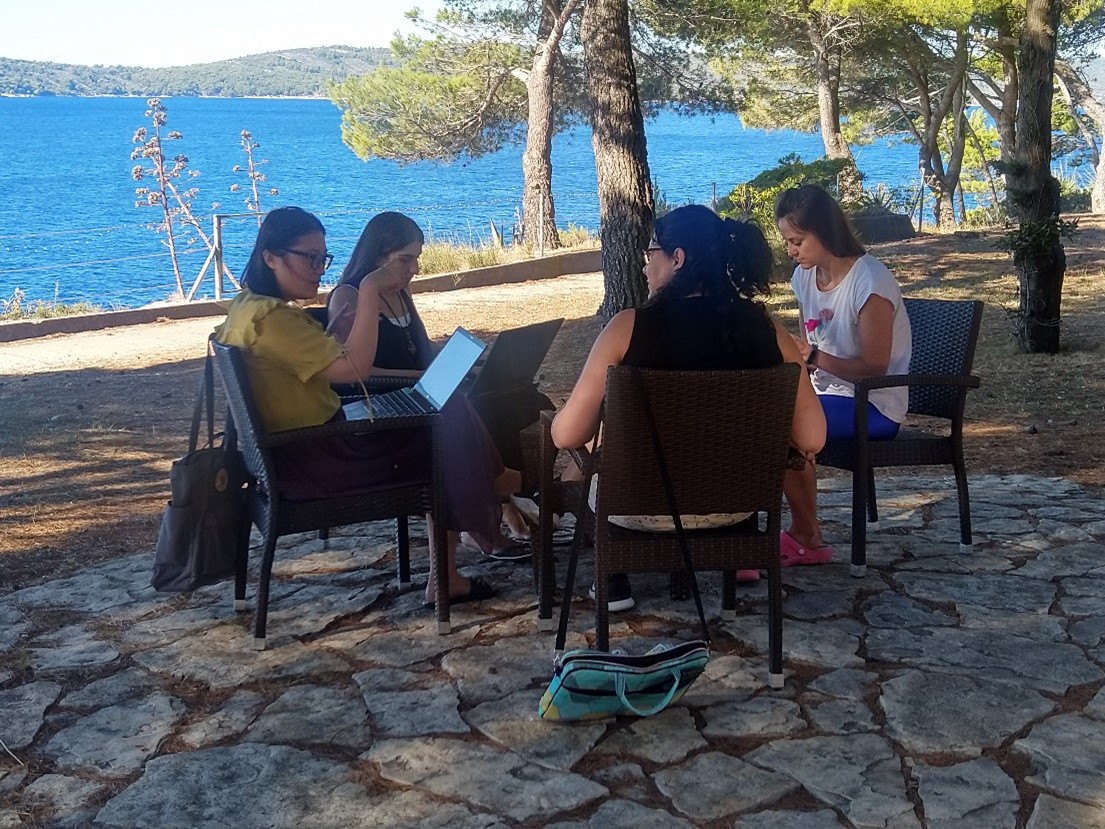
Dr. Debashish Bhattacharya Receives Prestigious Miescher-Ishida Prize for Advancing the Field of Endosymbiosis
August 16, 2022 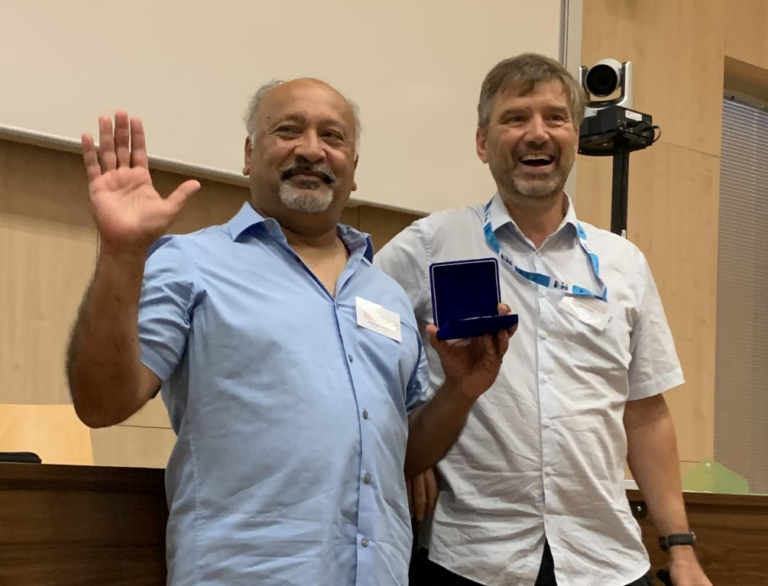
Distinguished Professor Debashish Bhattacharya was awarded the 2022 Miescher-Ishida Prize by the International Society of Endocytobiology (ISE) and the University of Tübingen, Germany. Dr. Bhattacharya was recognized for his many contributions to the field of plastid endosymbiosis. Including determining the place of algae in the tree of life, investigating the biology of extremophiles, and bringing high-throughput genomics methods to address many questions in algal evolution.
Read full article at SEBS and NJAES Newsroom
Dr. Karla Esquilín-Lebrón hosted a group of 4-H STEM Ambassadors to explore the ‘Microbes in and around us’.
July 18, 2022
Pictures captions: (L to R Leticia S., Richard B., Kennedy W., Dr. Karla, Rossy R., Taylor H. , Alek K., Dean S.)
The 4-H STEM Ambassador program welcomes New Jersey youth from middle and high school to the SEBS campus to participate in hands-on activities as they learn alongside Rutgers faculty in their respective discipline. Now in its 14th year, the program supports young people from six urban communities around New Jersey, with the objective of supporting and encouraging first generation college students in the pursuit of STEM careers. Seven STEM Ambassadors spent the day with Dr. Esquilín-Lebrón to learn about our New Jersey state microbe Streptomyces griseus, antibiotic production and the human microbiome. We clarify misconceptions about microorganisms, the production and use of antibiotics and the importance of microbes in our daily life. Students got a chance to learn about the diverse microbiology topics the faculty in our department research and the opportunities of pursuing a STEM degree at Rutgers. The STEM Ambassadors will take the knowledge they have gained this past week back to their respective communities and teach-back to their younger peers at local YMCAs, libraries, and afterschool programs.
Master of Microbial Biology and the Balance Beam
June 9, 2022

Belle Huang ends her Rutgers career with a bachelor of science degree in biology, a master's degree in microbial biology and four NCAA tournament appearances in gymnastics. See her in action in our video.
Microbiology instructor team publish a Tips and Tools article in the Journal of Microbiology and Biology Education
April 23, 2022
Graduate student Julia Van Etten, along with professors Ramaydalis Keddis, Jessica Lisa, and Ines Rauschenbach describe a novel laboratory exercise that encourages students to develop microscope skills through the collection and processing of local field samples. It also allows students to explore more about the diverse world of protists.
Rutgers Teaching Excellence Newtwork
Bhattacharya and Collaborators Receive a NSF Grant to Study Coral Genomics and Genetics
April 28, 2022
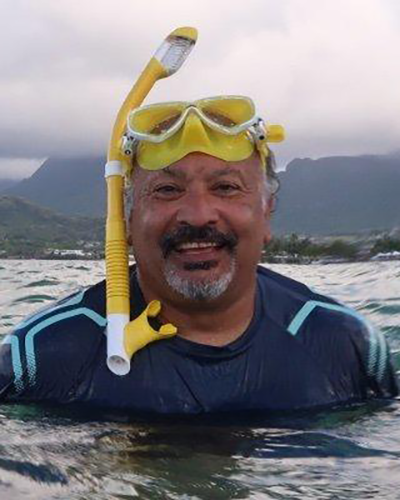
Rutgers Researcher Aims to Protect and Regenerate Corals Through Coral Genomics with $500K NSF Grant and Award-Winning Video.
In Memoriam
James (Jim) Macmillan, Professor Emeritus of Rutgers University died peacefully on April 5, 2022 at his home
Jim served on the Rutgers faculty for over 30 years, leaving a lasting impact on the field of microbiology and on the students and faculty with whom he worked alongside. Jim was born in Billings, Montana in 1931. He attended Montana State College in Bozeman Montana, earning a BS in Bacteriology in 1952 and a MS in Bacteriology in 1956. He continued graduate work at UC Davis, earning his PhD in Microbiology in 1963, and post-doctoral research as a National Institutes of Health Post- Doctoral Fellow.
Jim then joined the faculty of the College of Agriculture (later Cook College and now the School of Environmental and Biological Sciences) at Rutgers University in 1965 as an Assistant Professor of Microbiology in the Department of Biochemistry and Microbiology. He was promoted to Professor in 1971 and served as Chair of the Department from 1969 to 1979.
Jim taught graduate and undergraduate classes in microbiology, such as the course Applied Microbiology, and his research focused primarily on enzymes, toxins, and antibodies. He retired from Rutgers in 1997. In 2011, Jim was honored by a former student, Dennis Fenton and his wife Linda Fenton, who gifted a graduate Fellowship in Jim’s honor, the James Macmillan Endowed Fellowship in Microbiology.
Jim is survived by his wife, Laura Ann Macmillan (Budwell), and his daughters and granddaughters. He is missed by former students, coworkers and friends.
Max Häggblom Named Fellow of the American Association for the Advancement of Science
February 1, 2022

Congratulations to Max Häggblom our Distinguished Professor and chair for being named as a Fellow of the American Association for the Advancement of Science (AAAS)!
This places Max among the most accomplished scientists in the world. You can read about some of Max’s accomplishments and current research projects here: Rutgers Today



